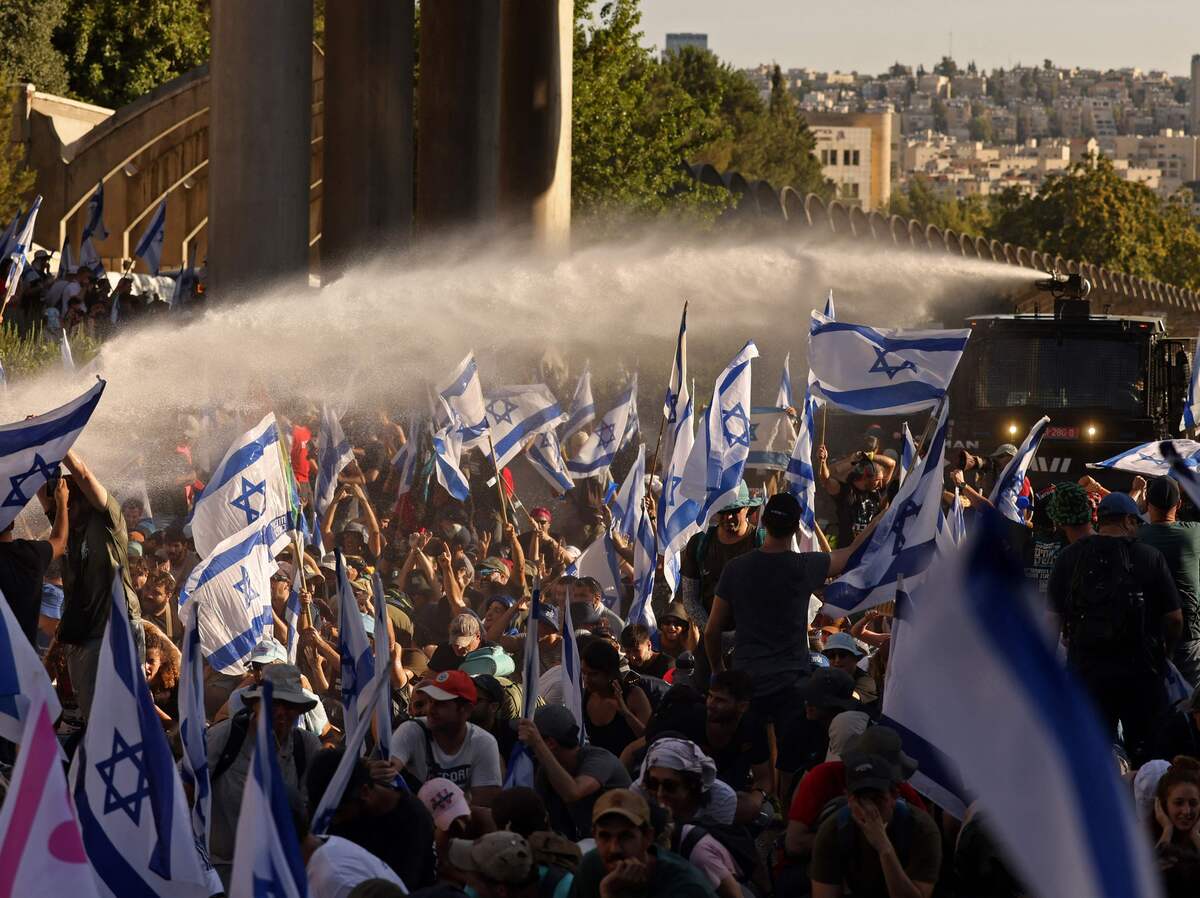
Israeli security forces use a water cannon to disperse demonstrators blocking the entrance of the Knesset, Israel's parliament, in Jerusalem on July 24, 2023, amid a months-long wave of protests against the government's planned judicial overhaul. Hazem Bader/AFP via Getty Images hide caption

Israeli security forces use a water cannon to disperse demonstrators blocking the entrance of the Knesset, Israel's parliament, in Jerusalem on July 24, 2023, amid a months-long wave of protests against the government's planned judicial overhaul.
Hazem Bader/AFP via Getty ImagesOn Monday, Israel's parliament voted into law a key measure to overhaul the country's judiciary. The measure prevents judges from striking down government decisions on the basis that they are "unreasonable."
The law strips Israel's Supreme Court of a key check on the power of Prime Minister Benjamin Netanyahu's government. This marks the first big move in a broader effort to weaken court oversight of senior officials. It comes after six months of protests from Israelis concerned that their government will have unchecked power. Prime Minister Benjamin Netanyahu is defending it, saying this law is the essence of democracy and will allow the elected government – his government – to carry out its agenda.
We hear from concerned protestors outside Israeli parliament — many citizens are afraid that their way of life is in danger.
Dahlia Scheindlin is a political analyst from Tel Aviv, she explains what this new Israeli law says about the state of democracy there.
Email us at
This episode was produced by Mia Venkat and Jonaki Mehta. It was edited by Sami Yenigun and Christopher Intagliata. Additional reporting from NPR's Daniel Estrin. Our executive producer is Sami Yenigun.

 Live Radio
Live Radio